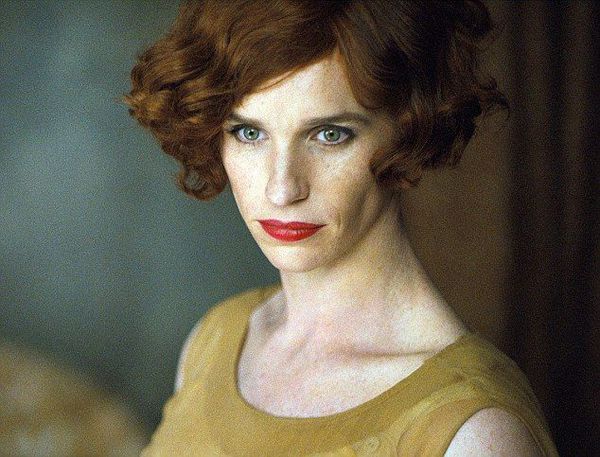Eye For Film >> Movies >> The Danish Girl (2015) Film Review
The Danish Girl
Reviewed by: Jane Fae

Films are films are films. A two-hour suspension of disbelief that for a while may make you laugh. Or cry. Or lift you up or, more rarely, put you down. For the most part, though, there is always a distance: I would rather that Anakin Skywalker not go to the dark side. But it makes little difference to my everyday life.
Then there’s that rare film that deals with a subject that may impact on you personally. Which is why I sat down with a certain trepidation to watch The Danish Girl, last week. For despite the broadly positive mainstream reviews, I was aware that there was, too, a degree of hostility toward it within the transgender community, of which I am part.

Let’s begin, though, with the film itself. It is a period piece, providing a nicely nuanced insight into the artistic community between the wars: divine decadence! Or blessed tolerance. Or, to provide a more modern perspective, genderqueer: a society in which traditional gender roles were in flux and there was a greater willingness to challenge them.
That is important because of the subject matter. The Danish Girl tells the story of what is claimed to be the first ever attempt at gender re-assignment surgery, assisting successful artist Einar Wegener (Eddie Redmayne) on their journey to becoming Lili Elbe.
On the surface, it is a story about a transition and although some might argue otherwise, it seems obvious that such a journey will first be made by a denizen of a community already avant garde as far as gender is concerned, as opposed to the back streets of Merthyr Tydfil.
But this is not just Lili’s story. It is also about her partner and wife, Gerda Gottlieb (Alicia Vikander), also a successful artist, who first supported and encouraged Lili, and later struggled to come to terms with the changes in their relationship brought about by Lili’s transition.
As the film evolves, support arrives for both in the form of Einar’s suave and wise childhood friend, Hans Axgil (Matthias Schoenaert), who provides emotional succour to Lili while simultaneously attempting to seduce Gerda.
It is not a bad film but it doesn't stand out as gripping drama. Eddie Redmayne, despite drawing praise for his depiction of a trans woman, is remarkably unengaging, while the real Danish Girl of this story, Gerda, is ever so slightly too much in the background. The stronger performance, perhaps spurred by the fact that she has been given a more interesting character to play with, is that of Alicia Vikander, who will probably miss an award this time round because she also wowed audiences in Ex Machina.
What, then, of the critique? This took a variety of forms. First off, the inevitable criticism of details. Lili’s journey was far longer, far more fraught than that depicted here. She underwent four operations (not the two shown here), and it was the fourth, an attempt to transplant a uterus, perhaps a century too early, that finally killed her.
By focusing on Lili’s social transition, her learning to dress, speak, act in a feminine manner, it is argued, the film yet again trivialises the transgender experience. On the other hand, it does tick many of the right boxes, if a bit too glibly. Lili’s first steps are closely associated with cross-dressing, and for this, some have claimed the film too closely associates being transgender with fetish.
However, Lili makes it very clear that this had nothing to do with her origins: she was always a woman, and surgery was doing no more than correcting an error made by God on the body front (tick).
Likewise, trans is not some sort of repressed homosexuality (tick) and being trans is dangerous: out in the park, Lili is attacked and beaten by two random strangers (tick).
More obscurely, it is argued that the film erases the fact that Lili was intersex. This was suggested in later years, but not, as far as I am aware, proven one way or the other. It is also accused of “ignoring non-binary perspectives”. That also feels like an attempt to shoehorn in modern perspectives: one thing that stands out about Lili’s story is how much it was journey into the unknown.
Hard enough to transition today, within an increasingly established legal and medical framework: just imagine being the first to do so. No rules. No road map. No compass. Terrifying!
Yes: the Danish Girl does follow in the well-worn footsteps of every documentary ever, regarding transgender as a journey rather than as state of being: of change, rather than a process of personal revelation, and in that respect it disappoints. But, director Tom Hooper might justifiably argue, “I didn’t make it for you!”
And in the sense that this is a film produced for a mainstream audience about a subject of which it knows little, it is not bad.
In fact, it is better than not bad. First, despite giving the lead role to a non-trans actor, it manages to include a trans actor (Rebecca Root) in a non-trans role, as one of the nurses at the clinic where Lili eventually goes.
Second, it foregrounds an issue all too often overlooked: the evolution of the relationship between Lili and Gerda. This is perhaps the stronger part of the film and highlights how things done with the best of intentions can rebound. Gerda helps, supports, sustains out of love, believing, initially, that at the end she will still have her husband, albeit in female form.
Neither are prepared for the fact that Lili is not Einar: she has an existence of her own; and that the best they can hope for, in the end is a strong and touching friendship.
Not, then, a trans film for trans people. But (mostly) harmless and, in a year when trans issues have rarely been out of the news, a long way from the worst thing to have happened.
Writer's note: Many thanks to the independent Broadway Cinema Letchworth, without which this review would not have been possible.
Reviewed on: 04 Jan 2016



















